
Angers: The Gem of the Loire Valley
Angers, located in the heart of the Loire Valley, is a city that seamlessly blends historical grandeur with modern charm. Known for its impressive medieval architecture, Angers is home to the Château d'Angers, which houses the world-famous Apocalypse Tapestry. This ancient fortress offers a stunning view of the Maine River and provides visitors with a deep dive into the rich history of the region. Strolling through Angers, you'll encounter a mix of cobblestone streets and vibrant marketplaces. The city’s botanical gardens, such as the Jardin des Plantes, offer a serene escape with a wide variety of plant species and picturesque landscapes. Angers is also renowned for its wine culture, with numerous vineyards offering tours and tastings of the region's best wines. Angers is a city that caters to both the history enthusiast and the modern traveler. Its museums, such as the Musée des Beaux-Arts, showcase an impressive collection of artworks, while the bustling city center features contemporary shops, cafes, and restaurants. The city's vibrant cultural scene includes festivals, concerts, and theater performances, ensuring that there is always something exciting to experience.
Local tips in Angers
- Visit the Château d'Angers early in the morning to avoid crowds and enjoy the views in peace.
- Take a guided wine tour to explore the local vineyards and taste the unique wines of the Loire Valley.
- Explore the city on foot to truly appreciate the charming cobblestone streets and hidden gems.
- Check the local calendar for cultural events and festivals to experience the vibrant local culture.
- Don't miss the Jardin des Plantes for a relaxing break amidst beautiful flora.
Angers: The Gem of the Loire Valley
Angers, located in the heart of the Loire Valley, is a city that seamlessly blends historical grandeur with modern charm. Known for its impressive medieval architecture, Angers is home to the Château d'Angers, which houses the world-famous Apocalypse Tapestry. This ancient fortress offers a stunning view of the Maine River and provides visitors with a deep dive into the rich history of the region. Strolling through Angers, you'll encounter a mix of cobblestone streets and vibrant marketplaces. The city’s botanical gardens, such as the Jardin des Plantes, offer a serene escape with a wide variety of plant species and picturesque landscapes. Angers is also renowned for its wine culture, with numerous vineyards offering tours and tastings of the region's best wines. Angers is a city that caters to both the history enthusiast and the modern traveler. Its museums, such as the Musée des Beaux-Arts, showcase an impressive collection of artworks, while the bustling city center features contemporary shops, cafes, and restaurants. The city's vibrant cultural scene includes festivals, concerts, and theater performances, ensuring that there is always something exciting to experience.
When is the best time to go to Angers?
Iconic landmarks you can’t miss
Château d'Angers
Explore a medieval fortress with royal residences and the world-renowned Tapestry of the Apocalypse in the heart of the Loire Valley.

Terra Botanica
Explore the world of plants at Terra Botanica in Angers: themed gardens, thrilling rides, and educational exhibits await visitors of all ages!
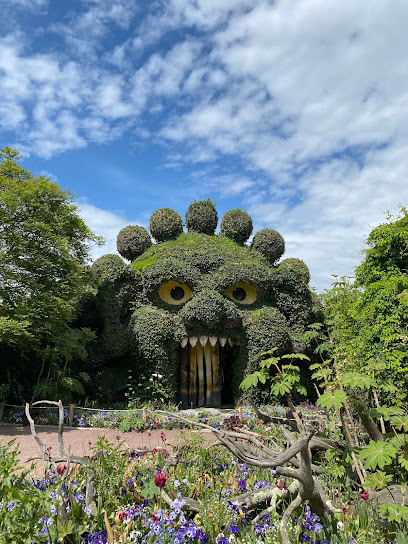
Jardin des plantes d'Angers
Discover Angers' enchanting Jardin des Plantes: a historic botanical garden offering a tranquil escape with diverse flora and charming landscapes.
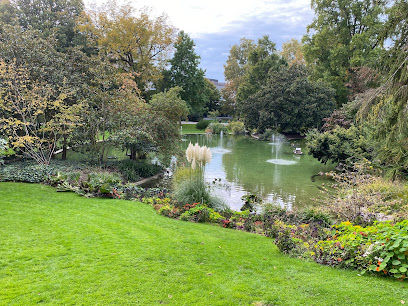
Cathédrale Saint-Maurice d'Angers
Discover Angers' iconic cathedral: a stunning blend of Gothic architecture, medieval stained glass, and royal history in the heart of the Loire Valley.
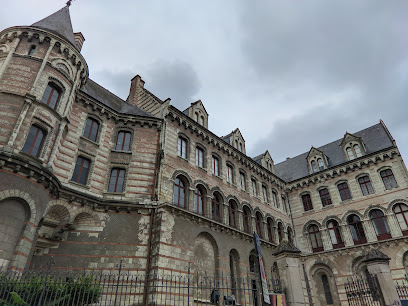
Saint Nicolas park
Discover Angers' largest park: a blend of nature, recreation, and history in the heart of the city. Perfect for relaxation and outdoor activities.
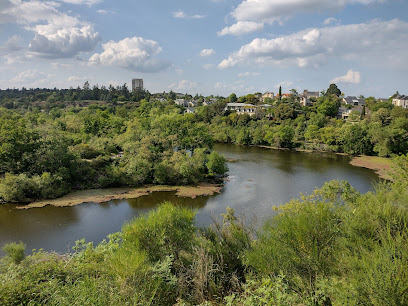
Chateau de Serrant
Discover a princely residence in the Loire Valley: Château de Serrant, where Renaissance architecture meets centuries of French history.
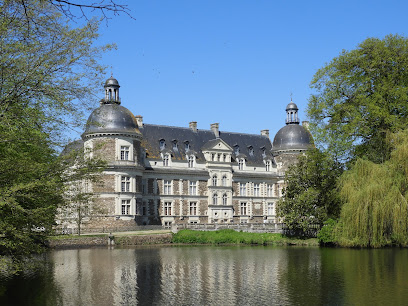
Arboretum Gaston Allard
Discover a world of botanical wonders at Angers' Arboretum Gaston Allard, a serene escape with diverse plant collections and themed gardens for all ages.
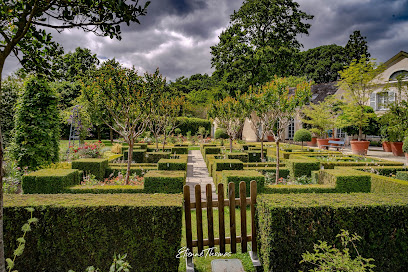
Le jardin du Mail
Discover a historic green space in the heart of Angers, perfect for a relaxing stroll and enjoying beautiful floral displays.
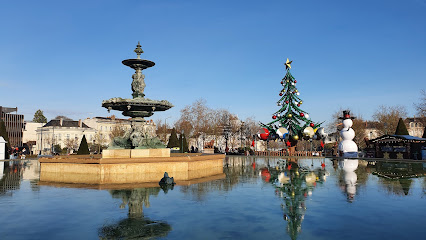
Musée Jean-Lurçat et de la tapisserie contemporaine
Explore centuries of tapestry art in a medieval hospital, home to Jean-Lurçat's monumental 'Chant du Monde' in Angers.
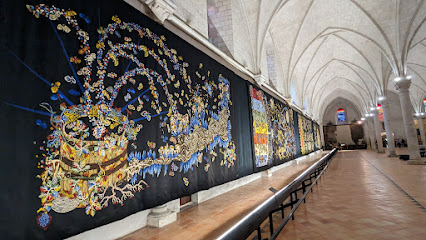
Musée des Beaux-Arts
Discover centuries of art and history at the Musée des Beaux-Arts in Angers, a blend of architectural styles and diverse collections.
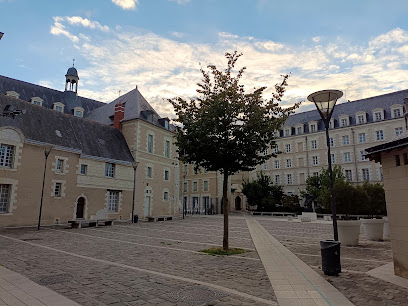
Galerie David d'Angers
Discover the genius of French sculptor David d'Angers in a stunningly restored abbey in Angers, showcasing over 400 sculptures and medallions.
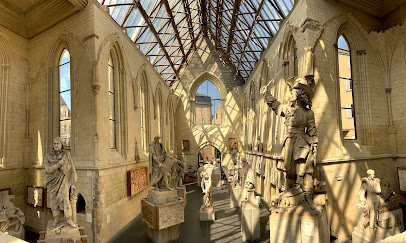
Office de Tourisme - Destination Angers
Your gateway to exploring Angers and the Loire Valley: expert advice, guided tours, local products, and essential visitor services.
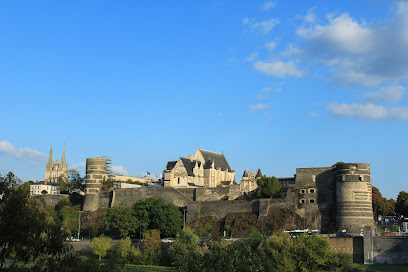
Former Convent of the Baumette
Discover a 15th-century convent in Angers with stunning views, a rock-carved church, and serene gardens, offering a unique historical escape.
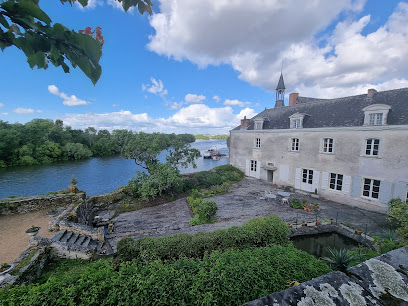
Musée Pincé
Explore global art and ancient civilizations in a stunning Renaissance setting at Musée Pincé in Angers, France.
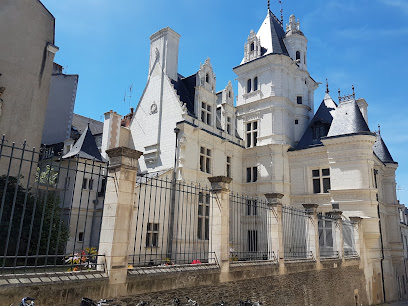
Palais Episcopal
Explore Angers' Palais Episcopal: A historic palace showcasing centuries of religious and architectural heritage next to the Saint-Maurice Cathedral.
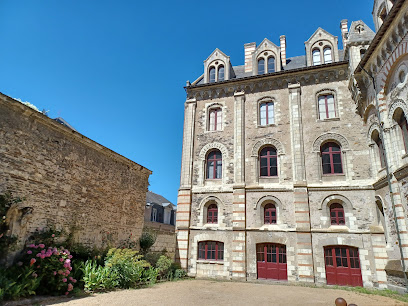
Unmissable attractions to see
Château d'Angers
Discover the Château d'Angers, a medieval fortress in the Loire Valley, home to the stunning Apocalypse Tapestry and offering panoramic views of Angers.
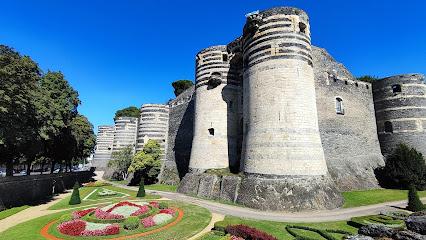
Terra Botanica
Discover the wonders of the plant kingdom at Terra Botanica, Europe's first botanical theme park, offering a unique blend of entertainment, education, and natural beauty near Angers.
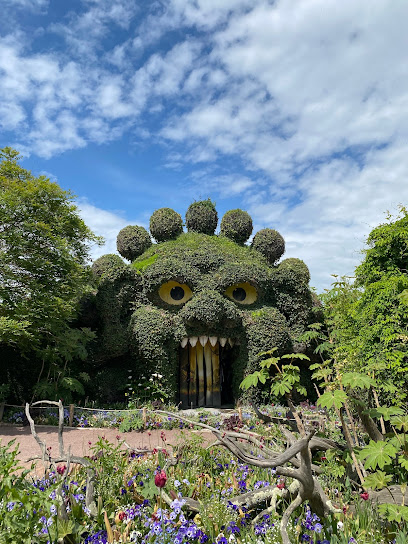
Château de Brissac
Discover the grandeur of Château de Brissac, the 'Giant of the Loire Valley,' where centuries of history, opulent interiors, and exquisite wines await in a majestic setting near Angers.
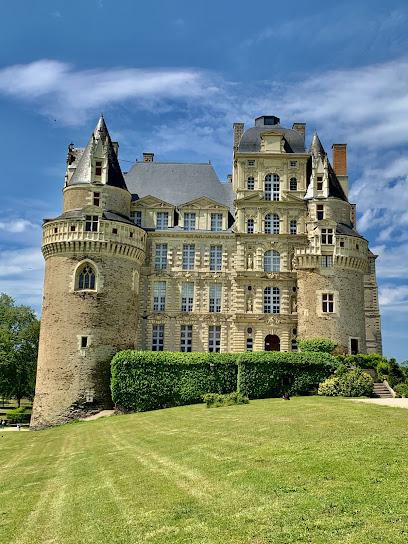
Cathédrale Saint-Maurice d'Angers
Discover the architectural grandeur and spiritual heart of Angers at the Cathédrale Saint-Maurice, a captivating blend of Romanesque and Gothic styles with stunning stained glass.
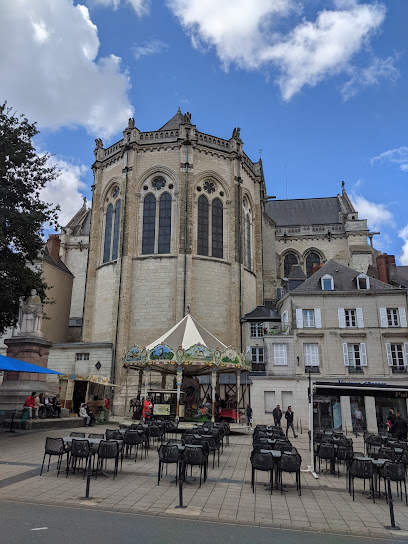
Rochemenier Village Troglodytique
Discover Rochemenier, a captivating troglodyte village in the Loire Valley, offering a unique journey into centuries of underground living and rural French traditions.
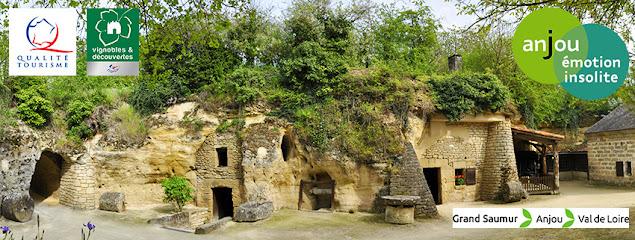
Balzac Park
Discover Angers' green heart: Balzac Park offers a tranquil escape along the Maine River, with diverse landscapes, walking paths, and a haven for local wildlife, perfect for nature lovers and families.
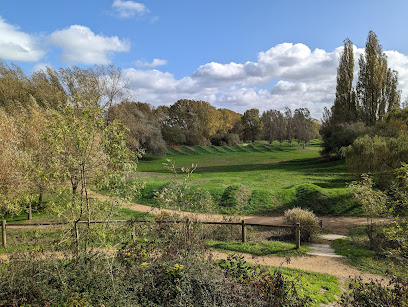
Saint Nicolas park
Discover Angers' largest green space: Saint Nicolas Park, a sprawling urban oasis with diverse landscapes, family activities, and tranquil lake views.
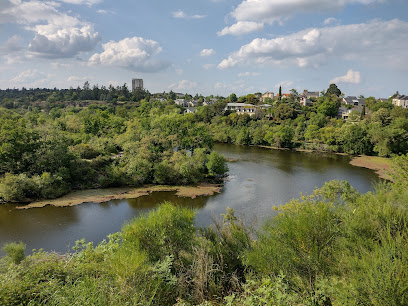
Chateau de Serrant
Discover Château de Serrant, a Renaissance masterpiece in the Loire Valley, boasting exquisite interiors, a vast library, and a rich history fit for emperors and princes.
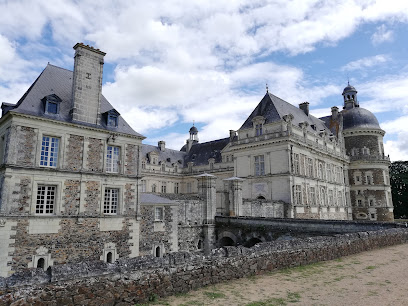
Parc de la Garenne
Escape to Parc de la Garenne in Angers: A scenic blend of gardens, animal encounters, and tranquil paths awaits in this green oasis, perfect for families and nature lovers.
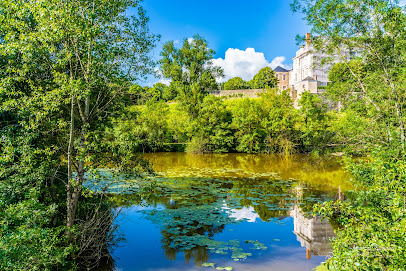
Arboretum Gaston Allard
Discover a world of botanical wonders at Arboretum Gaston Allard in Angers, a serene escape with diverse plant collections and themed gardens for all ages.
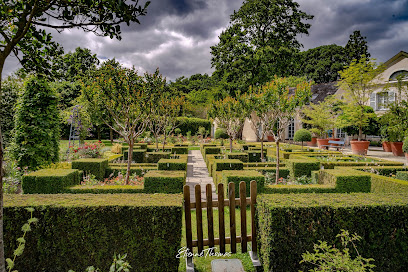
Le jardin du Mail
Discover Le Jardin du Mail in Angers: A historic green space offering tranquil beauty, neo-classical design, and a vibrant cultural atmosphere in the city center.
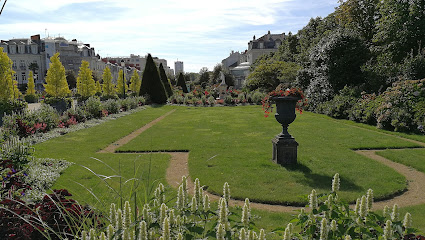
Musée Jean-Lurçat et de la tapisserie contemporaine
Discover a world of textile art at the Musée Jean-Lurçat in Angers, where medieval history meets modern creativity in a stunning architectural setting, showcasing masterpieces like 'Le Chant du Monde'.
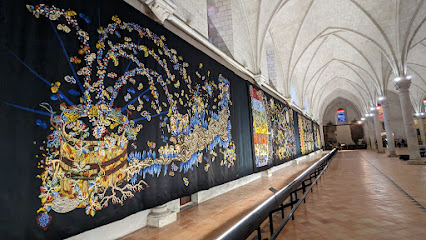
Park Ardoisières
Explore the serene landscapes and recreational delights at Park Ardoisières, a must-visit destination in Trélazé, France.
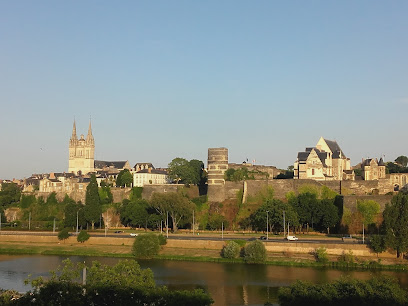
Musée des Beaux-Arts
Discover centuries of art and history at the Musée des Beaux-Arts in Angers, from medieval masterpieces to contemporary sculptures, nestled in the heart of the Loire Valley.
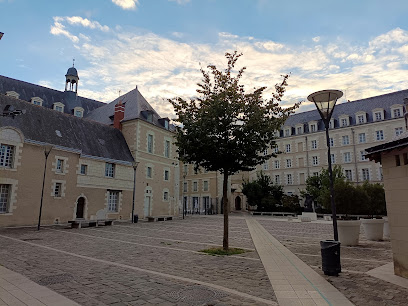
Galerie David d'Angers
Discover the genius of David d'Angers in a stunningly restored abbey. Explore over 400 sculptures, busts, and medallions in a unique blend of art and history in Angers, France.
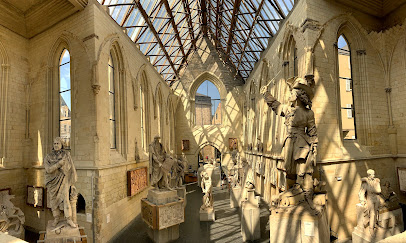
Essential places to dine
Les Fils à Maman Angers
Discover the delightful fusion of traditional French cuisine and modern flair at Les Fils à Maman Angers – a must-visit culinary gem in the heart of the city.
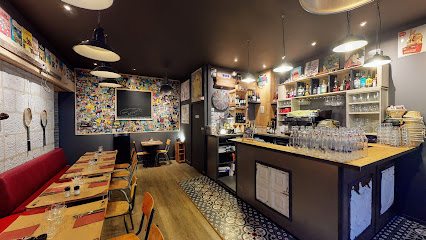
La Réserve
Discover La Réserve: A charming bistro in Angers offering exquisite country food and fine wines in an inviting atmosphere.
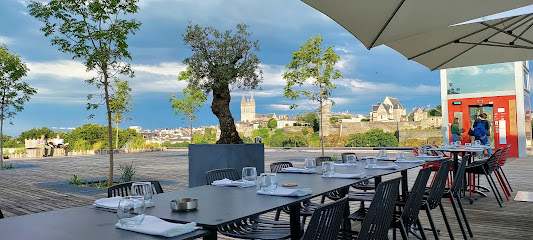
Chez Pont-Pont
Discover the exquisite flavors of French cuisine at Chez Pont-Pont in Angers – where every meal is a celebration of taste.
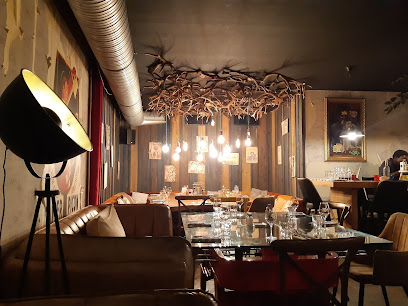
Les Petits Prés
Experience the essence of French cuisine at Les Petits Prés in Angers - where tradition meets innovation in every delicious bite.
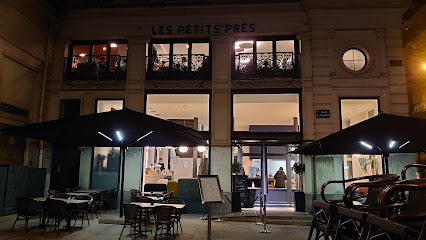
Brasserie Milord
Experience authentic French cuisine and craft beers at Brasserie Milord in Angers - where every meal is a celebration.
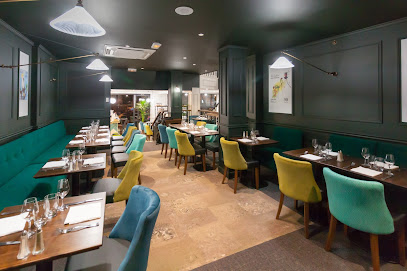
Ernest Inn Angers
Discover gourmet burgers and exquisite French cuisine at Ernest Inn Angers - A culinary gem in the heart of France.
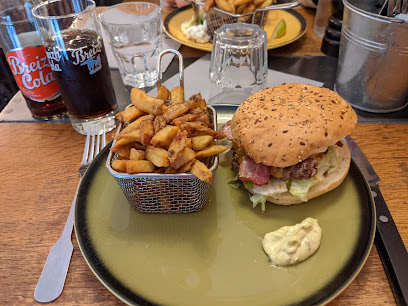
Restaurant La Boucherie
Experience the rich flavors of French cuisine at La Boucherie - Angers' premier destination for meat lovers.
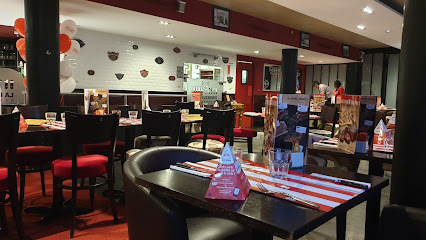
Thai L'inde
Experience the vibrant fusion of Thai and Indian cuisines at Thai L'inde – a culinary gem in Angers offering delicious takeout options.
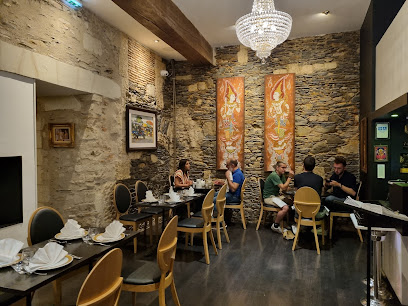
Le Mail Restaurant - Cuisine Bistronomique - Angers
Experience exquisite bistronomic dining at Le Mail Restaurant in Angers – where traditional French cuisine meets modern flair.
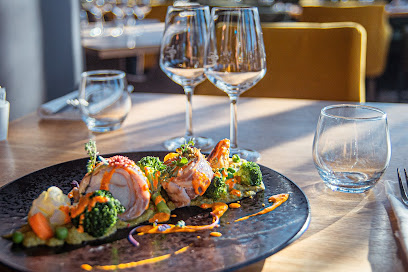
Brasserie de la Gare
Experience authentic French cuisine at Brasserie de la Gare in Angers - where tradition meets vibrant culinary artistry.
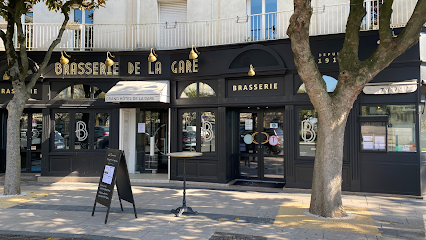
DAZUMA / Les Fondues
Discover the unique flavors of Chinese fondue at Dazuma in Angers - where tradition meets modern cuisine.
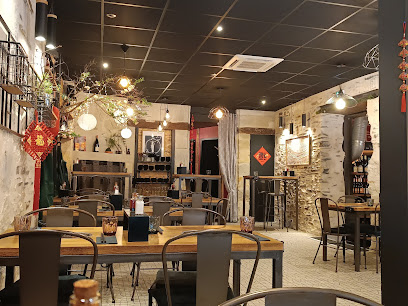
Crêperie du Château
Experience the authentic flavors of France at Crêperie du Château in Angers - a delightful destination for crêpe lovers!
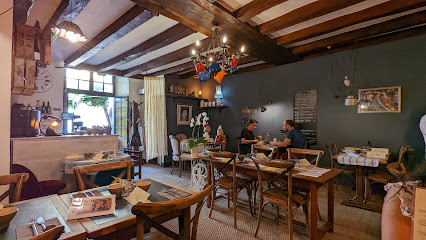
Au Restau-Théâtre
Discover the charm of Au Restau-Théâtre in Angers - where French cuisine meets captivating performing arts in an unforgettable setting.
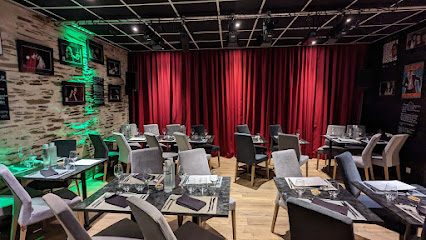
Restaurant La Ferme Angers
Experience authentic French cuisine at Restaurant La Ferme in Angers – where every dish tells a story.
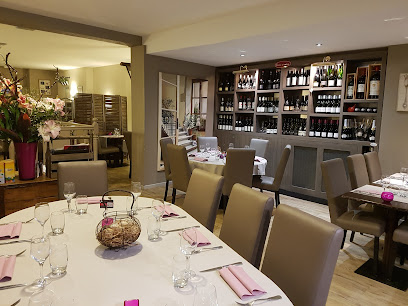
Pasta Al Dente
Experience the rich flavors of Italy at Pasta Al Dente – where homemade pasta and wood-fired pizzas come together in a cozy setting.
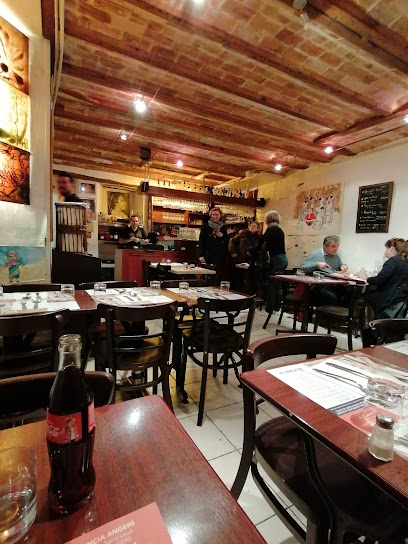
Markets, malls and hidden boutiques
La Galerie - Espace Anjou
Experience the vibrant shopping scene at La Galerie - Espace Anjou in Angers, featuring a mix of boutiques, eateries, and entertainment options.
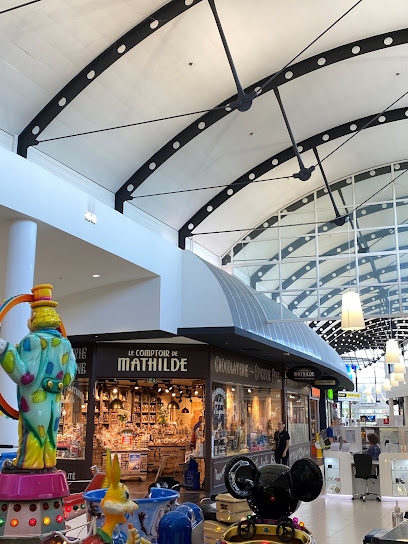
Centre commercial Grand Maine
Explore the diverse shops, dining options, and entertainment at Centre Commercial Grand Maine, a premier shopping destination in Angers, France.
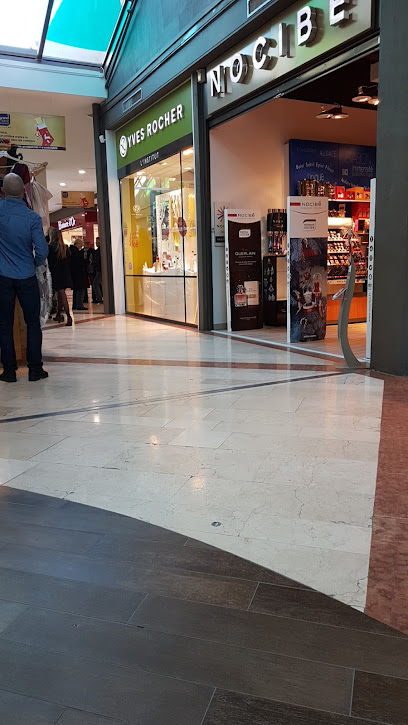
Centre commercial Carrefour Saint-Serge
Explore the bustling Centre Commercial Carrefour Saint-Serge, Angers' premier shopping destination with diverse shops, dining, and local culture.
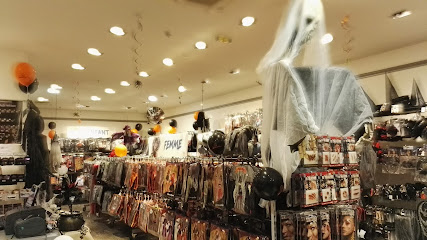
Galeries Lafayette Angers
Experience the best of fashion, beauty, and lifestyle at Galeries Lafayette Angers, a premier shopping destination in the heart of the city.
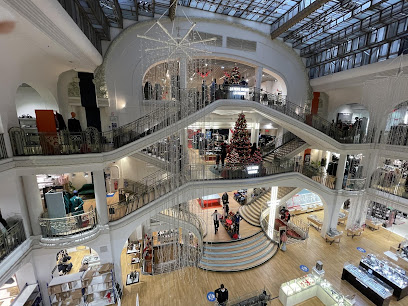
Nature and Discoveries
Explore the best of eco-friendly gifts and unique souvenirs at Nature and Discoveries in Angers, where creativity meets sustainability.
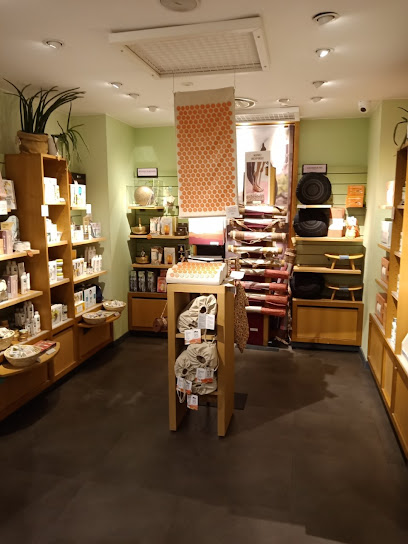
La Librairie Richer
Explore a treasure trove of books and art supplies at La Librairie Richer, the heart of literary culture in Angers.
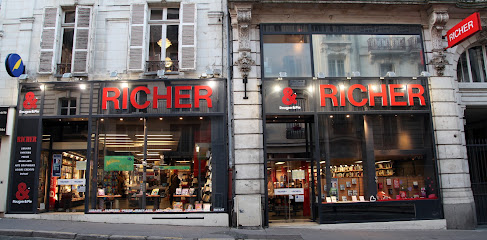
Adam House (House of artisans)
Explore unique handcrafted gifts and exquisite jewelry at Adam House in Angers, a treasure trove of local artisan craftsmanship.
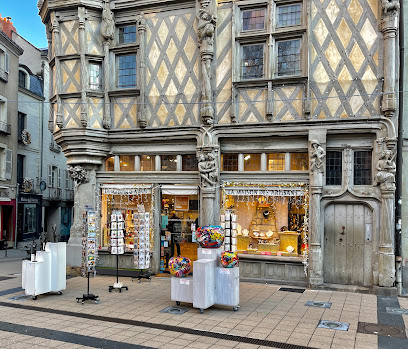
Bershka
Explore the latest fashion trends at Bershka in Angers, a vibrant clothing store offering stylish options for everyone.
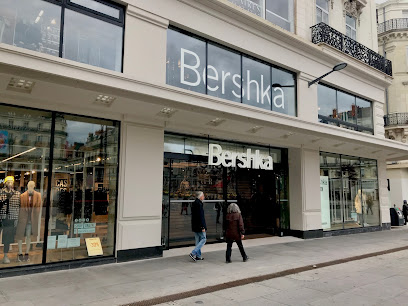
Kawaii KILO SHOP
Explore Kawaii KILO SHOP in Angers for unique vintage clothing and sustainable fashion finds that tell a story.
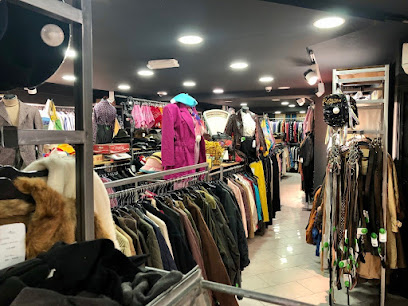
Flying Tiger Copenhagen Angers
Explore the vibrant world of Flying Tiger Copenhagen Angers, where quirky gifts and joyful surprises await every visitor.
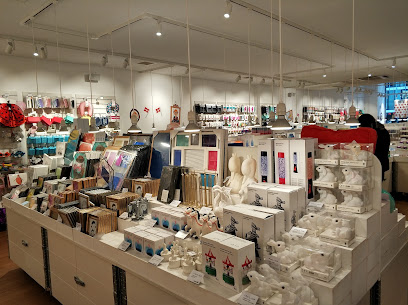
C'est deux euros Angers
Explore budget-friendly treasures and unique souvenirs at C'est Deux Euros, the charming discount store in the heart of Angers.
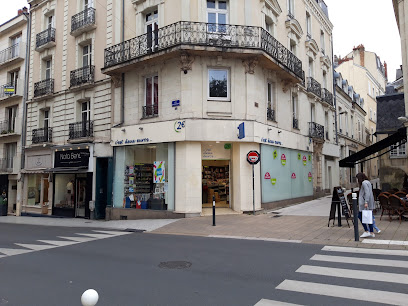
Paillette
Discover Paillette in Angers: A gift shop filled with unique treasures and home goods that embody the charm of French craftsmanship.
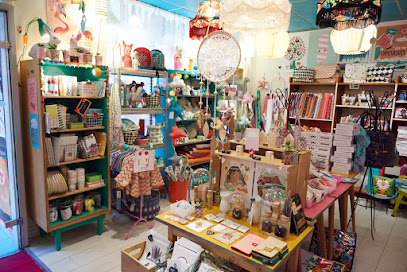
Le Comptoir Irlandais Angers
Discover authentic Irish culture at Le Comptoir Irlandais in Angers, your go-to gift shop for unique souvenirs, clothing, and gourmet delights.
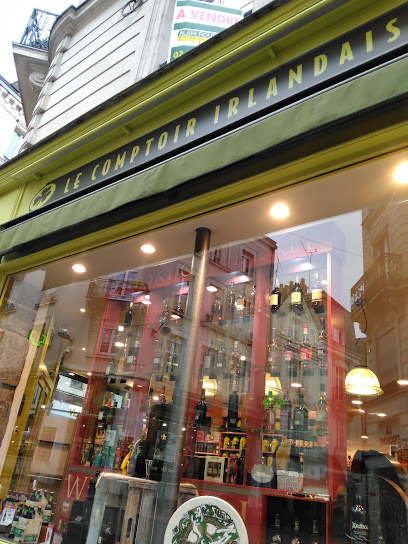
The Little Factory
Explore The Little Factory in Angers for unique artisanal treasures and a taste of local creativity in a charming atmosphere.
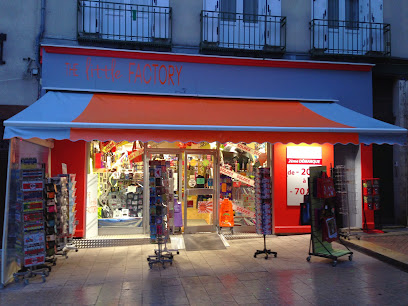
Sapotille
Explore unique women's fashion at Sapotille in Angers, where style meets local creativity in a charming boutique setting.
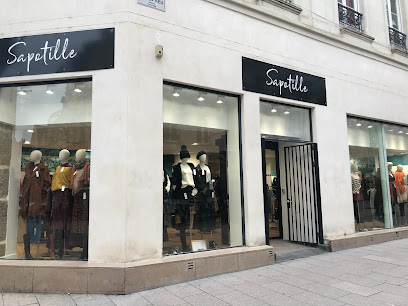
Essential bars & hidden hideouts
Au Fût et à mesure
Discover the joy of brewing at Au Fût et à Mesure, Angers' premier beer hall that offers a unique self-service experience with local and craft beers.
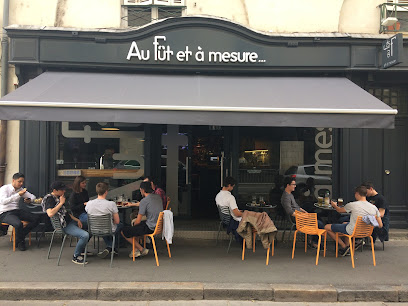
Le James Joyce
Discover the vibrant atmosphere of Le James Joyce in Angers, a delightful beer hall and pub offering local brews and a welcoming ambiance.
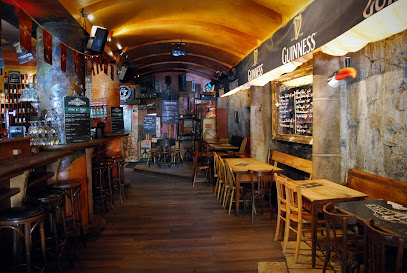
La Cave de la Trinquette
Discover La Cave de la Trinquette, Angers' premier bar for exquisite wines, craft beers, and lively music, set in a vibrant atmosphere.
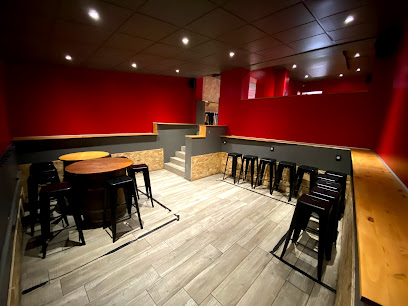
Matt Murphy's
Discover the cozy charm of Matt Murphy's, a vibrant pub in Angers offering delicious brasserie dishes and a welcoming atmosphere.
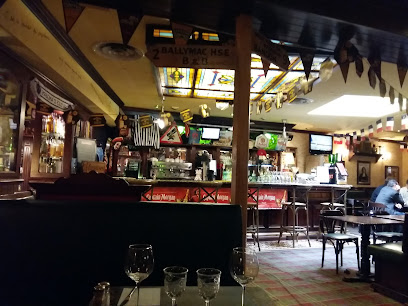
The Joker's Pub
Explore Angers' nightlife at The Joker's Pub, where lively ambiance meets delicious food and a vast selection of drinks.
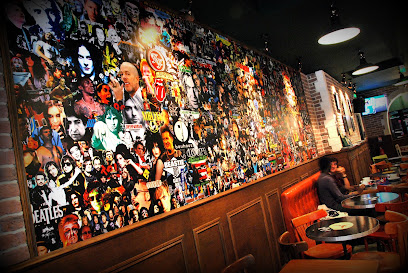
Black Peat
Discover Black Peat, a vibrant beer hall in Angers blending Scottish and French cuisine with a warm, welcoming atmosphere.
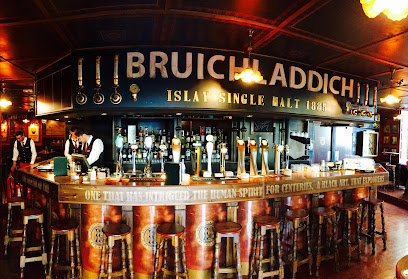
FLO Cocktail, Beer, Spirits & Music
Experience the vibrant nightlife of Angers at FLO Cocktail, Beer, Spirits & Music, where exceptional drinks meet a lively atmosphere.
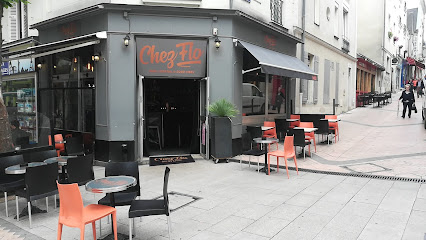
PMP Bar
Discover the vibrant atmosphere of PMP Bar in Angers, where local culture meets a diverse selection of drinks in a cozy setting.
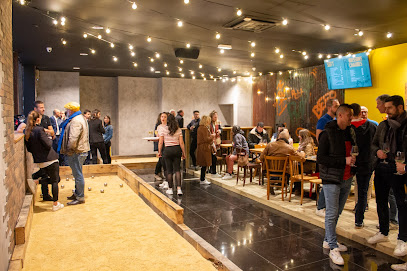
Q de sac
Discover the cozy charm of Q de sac, a vibrant bar in Angers offering a delightful selection of drinks and a warm atmosphere for tourists and locals alike.
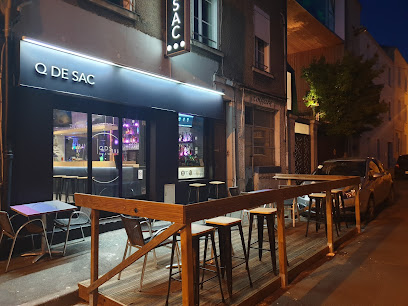
L'Okapi
Discover the vibrant nightlife at L'Okapi, a lively bar in Angers offering a delightful array of drinks and a welcoming atmosphere for all.
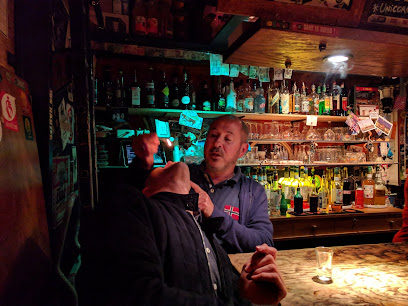
Le Dublin's Irish pub
Discover the lively spirit of Le Dublin's Irish Pub in Angers, where great food, drinks, and entertainment come together for an unforgettable experience.
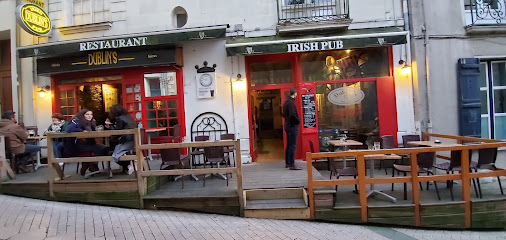
Le Falstaff
Discover the vibrant nightlife of Angers at Le Falstaff, where delightful drinks and a lively atmosphere await every visitor.
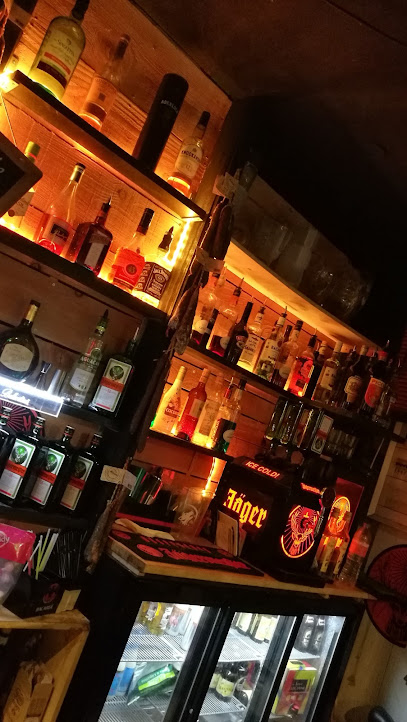
Le Gatsby Bar
Discover the charm of Le Gatsby Bar in Angers, where exquisite cocktails meet captivating live performances in an elegant setting.
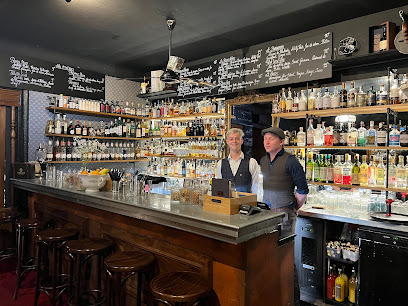
Le Punch
Experience the vibrant nightlife of Angers at Le Punch, where exceptional cocktails and a lively atmosphere create unforgettable moments.
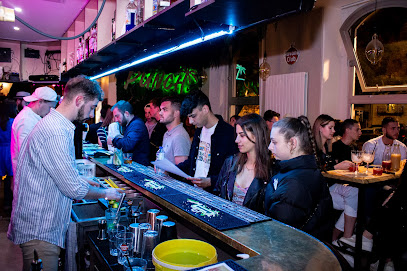
Local Phrases
-
- HelloBonjour
[bon-zhoor] - GoodbyeAu revoir
[oh ruh-vwahr] - YesOui
[wee] - NoNon
[noh] - Please/You're welcomeS'il vous plaît/De rien
[seel voo pleh/duh ree-ehn] - Thank youMerci
[mair-see] - Excuse me/SorryExcusez-moi/Désolé
[ex-kew-zay mwa/day-zo-lay] - How are you?Comment ça va?
[koh-mohn sah vah] - Fine. And you?Bien. Et vous?
[byen. ay voo] - Do you speak English?Parlez-vous anglais?
[par-lay voo ahn-glay] - I don't understandJe ne comprends pas
[zhuh nuh kohm-prahnd pah]
- HelloBonjour
-
- I'd like to see the menu, pleaseJe voudrais voir le menu, s'il vous plaît
[zhuh voo-dray vwahr luh muh-new, seel voo pleh] - I don't eat meatJe ne mange pas de viande
[zhuh nuh mahnj pah duh vee-and] - Cheers!Santé!
[sahn-tay] - I would like to pay, pleaseJe voudrais payer, s'il vous plaît
[zhuh voo-dray pay-ay, seel voo pleh]
- I'd like to see the menu, pleaseJe voudrais voir le menu, s'il vous plaît
-
- Help!Au secours!
[oh suh-coor] - Go away!Allez-vous en!
[ah-lay voo zahn] - Call the Police!Appelez la police!
[ah-play lah poh-lees] - Call a doctor!Appelez un médecin!
[ah-play uh may-deh-sahn] - I'm lostJe suis perdu
[zhuh swee pair-doo] - I'm illJe suis malade
[zhuh swee mah-lahd]
- Help!Au secours!
-
- I'd like to buy...Je voudrais acheter...
[zhuh voo-dray ah-shay-tay] - I'm just lookingJe regarde juste
[zhuh ruh-gard zhewst] - How much is it?Combien ça coûte?
[kohm-byen sah koot] - That's too expensiveC'est trop cher
[say troh shair] - Can you lower the price?Pouvez-vous baisser le prix?
[poo-veh voo bay-say luh pree]
- I'd like to buy...Je voudrais acheter...
-
- What time is it?Quelle heure est-il?
[kel er ay-teel] - It's one o'clockIl est une heure
[eel ay oon er] - Half past (10)Dix heures et demie
[dees er ay duh-mee] - MorningMatin
[mah-tahn] - AfternoonAprès-midi
[ah-pray mee-dee] - EveningSoir
[swahr] - YesterdayHier
[yair] - TodayAujourd'hui
[oh-zhoor-dwee] - TomorrowDemain
[duh-mahn] - 1Un
[uhn] - 2Deux
[duh] - 3Trois
[twah] - 4Quatre
[kah-truh] - 5Cinq
[sank] - 6Six
[sees] - 7Sept
[sept] - 8Huit
[wheat] - 9Neuf
[nuff] - 10Dix
[dees]
- What time is it?Quelle heure est-il?
-
- Where's a/the...?Où est...?
[oo ay...] - What's the address?Quelle est l'adresse?
[kel ay lah-dress] - Can you show me (on the map)?Pouvez-vous me montrer (sur la carte)?
[poo-veh voo muh mohn-tray (soor lah kart)] - When's the next (bus)?Quand est le prochain (bus)?
[kohnd ay luh proh-shang (boos)] - A ticket (to ....)Un billet (pour ....)
[uhn bee-yay (poor)]
- Where's a/the...?Où est...?
History of Angers
-
Angers, located in the Maine-et-Loire department in western France, has its origins in the Roman era. Initially known as Juliomagus, it developed as a significant Gallo-Roman settlement. The strategic location along the Maine River contributed to its growth and prosperity during this period.
-
In the 12th century, Angers became the seat of the powerful Plantagenet dynasty. Geoffrey Plantagenet, the Count of Anjou, played a pivotal role in the establishment of this dynasty, which eventually ruled over England and large parts of France. The Angevin Empire, as it was known, left a lasting legacy on the region’s architecture and culture.
-
One of the most iconic landmarks in Angers is the Château d'Angers. Built in the 13th century by Saint Louis (King Louis IX), this massive fortress was designed to protect the region from potential threats. The castle is renowned for its imposing walls, 17 towers, and the remarkable Apocalypse Tapestry, a medieval masterpiece depicting scenes from the Book of Revelation.
-
Founded in the early 14th century, the University of Angers was one of the oldest universities in France. It played a crucial role in the intellectual and cultural development of the region. Though it was closed during the French Revolution, the university was re-established in the 20th century and continues to be a center for higher education and research.
-
During the 16th century, Angers was significantly affected by the French Wars of Religion. The city was a stronghold for Protestant Huguenots, leading to several conflicts and sieges. The period was marked by religious and political turmoil, which left an indelible mark on the history and architecture of the city.
-
In the 18th century, Angers embraced the ideas of the Enlightenment, becoming a hub for intellectual and cultural exchange. However, the French Revolution brought dramatic changes. The city witnessed the rise of revolutionary fervor, the dismantling of the old regime, and significant social and political upheaval. Notably, Angers was a center of resistance during the War in the Vendée.
-
The 19th century saw Angers transitioning into the industrial era. The arrival of the railway in 1849 spurred economic growth, transforming Angers into an important center for the textile industry, food production, and machinery manufacturing. This period also saw significant urban development and the modernization of the city's infrastructure.
-
Angers, like much of France, experienced the turmoil of World War II. The city was occupied by German forces in 1940 and became a center for resistance activities. In 1944, Angers was liberated by the Allied forces, but the war left behind significant damage. The post-war period saw a concerted effort to rebuild and restore the city, preserving its historical heritage while embracing modernity.
-
Today, Angers is a vibrant city that seamlessly blends its rich historical heritage with contemporary culture. Known for its beautiful gardens, thriving arts scene, and renowned wines from the surrounding Loire Valley, Angers continues to be a jewel of western France. The city’s commitment to preserving its history while fostering innovation makes it an essential destination for travelers.
Angers Essentials
-
Angers is located in the Loire Valley region of France. The nearest major airport is Nantes Atlantique Airport, approximately 90 kilometers away. From the airport, you can take a direct train to Angers Saint-Laud station, which takes about 1.5 hours. Alternatively, you can fly into Paris and take a high-speed TGV train from Paris Montparnasse to Angers, which takes about 1.5 hours.
-
Angers has an efficient public transportation system, including buses and trams operated by Irigo. Tickets can be purchased at ticket machines or via the Irigo app. For short distances, walking or cycling is a pleasant option, as the city is very pedestrian and bike-friendly. Taxis and ride-sharing services like Uber are also available. Car rental is an option if you plan to explore the surrounding Loire Valley.
-
The official currency in France is the Euro (EUR). Credit and debit cards are widely accepted in Angers, but it is advisable to carry some cash for smaller establishments or markets. ATMs are plentiful throughout the city. Contactless payments are also commonly accepted.
-
Angers is generally a safe city for tourists. However, it is advisable to take standard precautions such as avoiding poorly lit areas at night and keeping an eye on your belongings in crowded places. Be cautious around the train station and some parts of downtown late at night as these areas can attract petty crime.
-
In case of emergency, dial 112 for immediate assistance. Angers has a well-equipped hospital, Centre Hospitalier Universitaire d'Angers, for medical emergencies. Pharmacies are available throughout the city for minor health issues. It is recommended to have travel insurance that covers medical emergencies.
-
Fashion: Do dress casually yet smartly; avoid overly casual attire like flip-flops or beachwear in the city. Religion: Do respect religious sites by dressing modestly and speaking quietly. Public Transport: Do validate your ticket before boarding trams or buses. Don't eat or drink on public transport. Greetings: Do greet people with 'Bonjour' and maintain polite formalities. Eating & Drinking: Do try local specialties like Cointreau and Anjou wine; don't rush through meals, as dining is a leisurely affair in France.
-
To experience Angers like a local, visit the local markets such as La Doutre or Place du Ralliement. Try the local cuisine at small bistros and patisseries. Engage with locals in French, even if it's just a few basic phrases. Explore the lesser-known parks and gardens like Jardin des Plantes. Don't miss the stunning Château d'Angers and its famous Apocalypse Tapestry.
Trending Landmark in Angers
-
Château d'Angers
-
Terra Botanica
-
Jardin des plantes d'Angers
-
Cathédrale Saint-Maurice d'Angers
-
Saint Nicolas park
-
Chateau de Serrant
-
Arboretum Gaston Allard
-
Le jardin du Mail
-
Musée Jean-Lurçat et de la tapisserie contemporaine
-
Musée des Beaux-Arts
-
Galerie David d'Angers
-
Office de Tourisme - Destination Angers
-
Former Convent of the Baumette
-
Musée Pincé
-
Palais Episcopal
Nearby Cities to Angers
-
Things To Do in Nantes
-
Things To Do in Tours
-
Things To Do in Rennes
-
Things To Do in La Rochelle
-
Things To Do in Saint-Malo
-
Things To Do in Caen
-
Things To Do in St. Clement
-
Things To Do in Gorey
-
Things To Do in St. Helier
-
Things To Do in St. Aubin
-
Things To Do in Trinity
-
Things To Do in St. Brelade
-
Things To Do in St. Lawrence
-
Things To Do in St. Peter
-
Things To Do in Limoges













